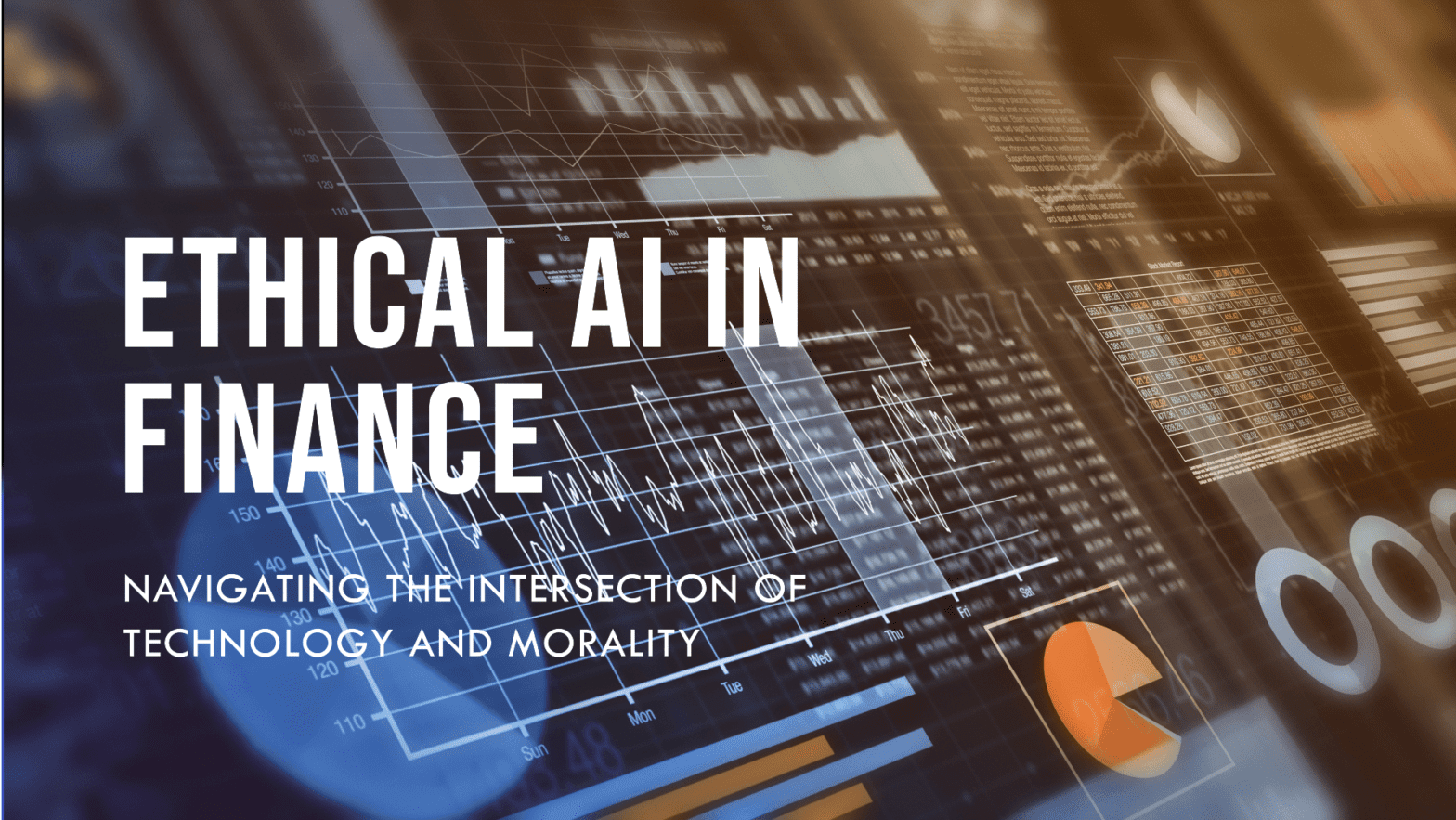Artificial Intelligence (AI) is transforming the financial services industry, providing unprecedented opportunities for innovation, efficiency, and customer service improvements. However, as with any powerful technology, the integration of AI in finance raises significant ethical considerations that must be addressed to ensure responsible and fair usage. In this blog, we will explore some of the key ethical issues associated with AI in the financial sector and discuss how organizations can navigate these challenges.
Data Privacy and Security
One of the most critical ethical concerns in AI for finance is data privacy and security. Financial institutions handle vast amounts of sensitive customer data, including personal identification information, transaction histories, and financial behaviors. Ensuring that this data is protected from breaches and misuse is paramount.
AI systems often require large datasets to train and operate effectively. This raises questions about how data is collected, stored, and shared. Financial institutions must implement robust data governance frameworks to ensure that data is handled ethically and in compliance with regulations such as the General Data Protection Regulation (GDPR) and the California Consumer Privacy Act (CCPA).
Example: A notable example of a data privacy breach occurred when Equifax, one of the largest credit reporting agencies, suffered a data breach in 2017, exposing the personal information of 147 million people. This incident highlighted the importance of stringent data security measures (Source: FTC).
Also Read: Artificial Intelligence (AI) and Machine Learning in Trading
Bias and Fairness
AI systems can inadvertently perpetuate or even exacerbate existing biases present in the data they are trained on. In the financial sector, this can lead to unfair treatment of certain groups, particularly in areas like lending, credit scoring, and insurance underwriting.
For instance, if historical lending data reflects biased lending practices, an AI system trained on this data might continue to discriminate against minority groups. It is crucial for financial institutions to regularly audit their AI models for bias and ensure that their decision-making processes are transparent and fair.
Example: The case of the Apple Card, which was criticized for allegedly offering lower credit limits to women compared to men with similar credit profiles, underscores the potential for AI to perpetuate bias (source: BBC).
Transparency and Explainability
AI systems, particularly those based on complex machine learning algorithms, can often operate as “black boxes,” making decisions that are difficult to understand or explain. In the financial industry, where regulatory compliance and customer trust are paramount, the lack of transparency can be a significant issue.
Financial institutions must strive to develop AI systems that are explainable, meaning that their decision-making processes can be understood and scrutinized by humans. This is essential not only for regulatory compliance but also for maintaining customer trust.
Example: The European Union’s AI Act aims to address the transparency of AI systems, requiring high-risk AI systems, such as those used in credit scoring, to be transparent and explainable (source: EU AI Act).
Also Read: Proof of Concept (POC) determines the feasibility of an Idea
Accountability and Governance
Establishing clear accountability for AI systems is crucial. Financial institutions must define who is responsible for the outcomes of AI-driven decisions, particularly when those decisions have significant impacts on customers’ financial well-being.
Strong AI governance frameworks are essential to ensure that AI systems are developed and deployed responsibly. This includes regular audits, risk assessments, and the establishment of ethical guidelines for AI use.
Example: The Monetary Authority of Singapore (MAS) has issued guidelines on the responsible use of AI and data analytics in financial services, emphasizing the importance of accountability and ethical considerations (source: MAS Guidelines).
Conclusion
As AI continues to revolutionize the financial sector, it is imperative for financial institutions to address the ethical considerations associated with its use. By prioritizing data privacy, fairness, transparency, and accountability, organizations can harness the power of AI for finance while ensuring that it is used responsibly and ethically. Establishing strong ethical guidelines and governance frameworks will not only help mitigate risks but also foster trust and confidence among customers and regulators alike.

